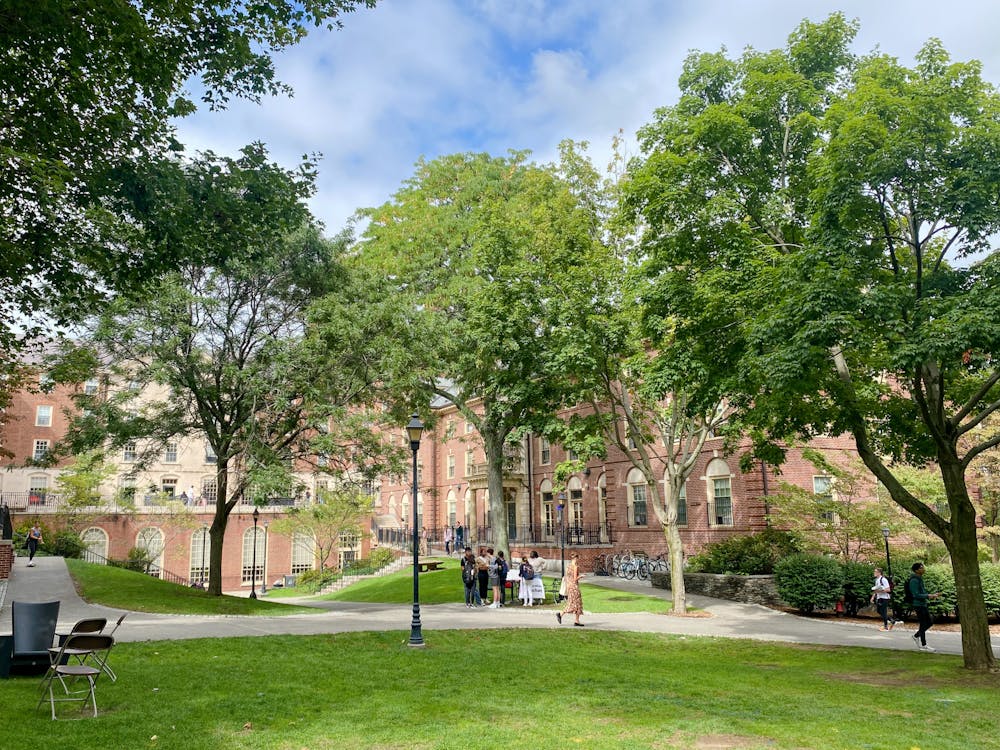The Meiklejohn Peer Advising Program will pay peer advisors a $500 stipend this semester, one of several changes made to the role for this academic year.
The program held its annual community building and training orientation September 3, marking the official implementation of changes to the program made in the months prior. For the 2022-23 academic year, Meiklejohn peer advisors, who are paired with a faculty partner and work to advise a group of first-year students for the duration of the academic year, will now have more consistent semesterly commitments than in past years and an increased number of faculty partners to allow for smaller advising groups.
Program directors also amended the Meiklejohn application process for the 2022-23 academic year, according to the program website. While applicants in previous years went through an interview, this year’s applicants had to submit answers to three short response questions, write an introductory letter and record a two-to-three minute video response to a case study.
In the spring, the College offered a new course titled UNIV0123: “Practical Introduction to Peer Advising at Brown” for students interested in being successful peer advisors, according to Cecile Schreidah ’24, a first-time Meiklejohn Leader. Students that completed this course were given priority when applying for the Meiklejohn position, according to the program website.
Going forward, Meiklejohn Leaders will serve as teaching assistants for the course, allowing for a more streamlined recruitment process, Yolanda Rome, associate dean of the College for class-year advising, wrote in an email to The Herald.
Meiklejohns also had to complete an online mini-course over the summer, and they participated in an in-person orientation, she added.
Rome wrote that the College considered different ways to provide monetary compensation for the Meiklejohns for many years. “Given the large number of Meiklejohns, it took some creative thinking to figure out how to do this,” Rome added. “One of our goals is to make certain that the opportunity to be a Meiklejohn is available to any students.”
“Paid work always helps to make positions more inclusive,” Schreidah added. “Not everyone can commit time to positions, especially if they need to work a job to make money during school. … Stipends help alleviate these barriers.”
For Lucy Lebowitz ’24, who had always considered being a Meiklejohn, the stipend was an extra incentive to finally apply for the position.
“I think the payment allows more people to become Meiklejohns, which is even better for the first-years because it allows a more diverse group of peers to advise them,” Lebowitz said. “It feels like there are more opportunities for every student to be able to relate to their advisors.”
With the position now being compensated, Meiklejohn program heads wanted to make sure the expectations for the position were more clear, Schreidah said.
“In the past, we’ve had Meiklejohns that haven’t been as responsive to their students,” Schreidah said. “So we really want to make sure that all the freshmen feel connected and supported.”
Meiklejohns are now expected to connect with their advisees weekly for the first two months of the semester and then every two weeks for the rest of the year, Rome wrote. Schreidah also emphasized that they have additional responsibilities such as assisting students with registration every semester and going to meals with advisees at least once per semester to promote bonding.
“Meiklejohns are not just an academic resource, but rather there to support students socially and personally,” Schreidah added.
These new role guidelines were outlined during the mandatory training that all Meiklejohns completed, including those returning to the role like Emily Mayo ’24, who said she felt she received more information about how to more actively advise first-years.
“Because there are more set expectations for Meiklejohns and how they interact with their advisees throughout the process,” Mayo said, “there’s a more consistent framework for check-ins and advisor-advisee relationships and (that) will hopefully give freshmen a better experience with advising overall.”
The program also hired more faculty and staff to serve as first-year advisors than in the past, according to Rome. “As a result, we’ve been able to reduce the size of advising groups,” she wrote. “This allows all advisors and Meiklejohns to get to know each of their individual advisees, helping to guide them in their choices to create their own path at Brown.”
Having fewer advisees is “nice because I can provide more personalized support to each of them,” Mayo said.
“I decided to become a Meiklejohn this semester because I didn’t have a lot of good advising when I was a freshman and taught myself a lot of things,” Lebowitz said. “With all these changes to the position, I’m hoping I could be better suited to pass on that knowledge to first-years to make sure they start off their year right.”

Alex Nadirashvili was the managing editor of multimedia and social media for The Brown Daily Herald's 133rd Editorial Board. As a former University News editor, he covered faculty, higher education and student life, though his proudest legacy is The Brown Daily Herald TikTok account.





